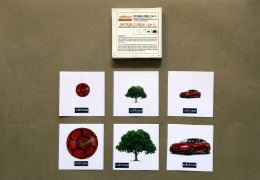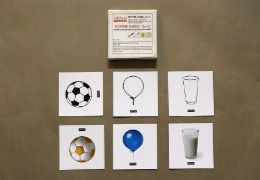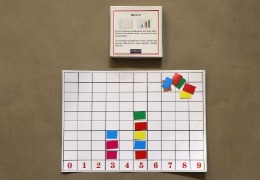Publications & teaching Learning Materials
Publications



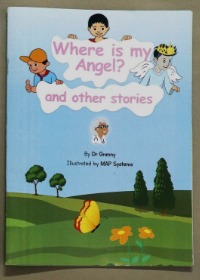

Click for Purchase Click For Purchase


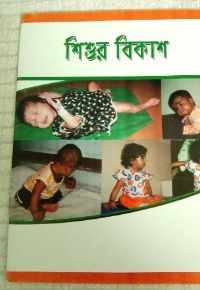


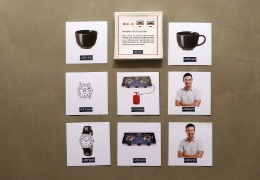

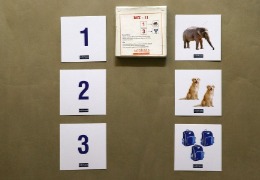
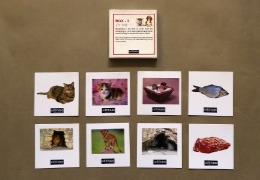



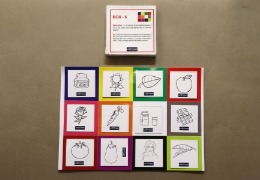


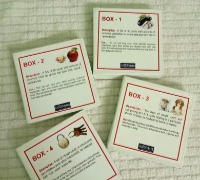



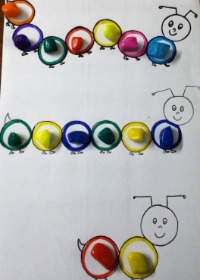





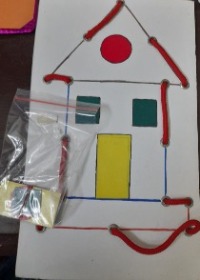
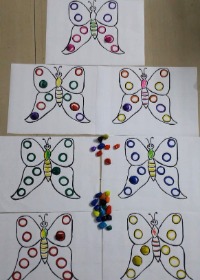


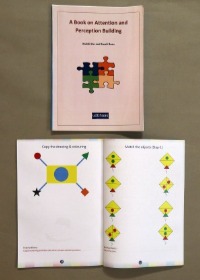

INFORMATION FOR MOTHERS
1. CHILD DEVELOPMENT
1.1 WHAT EVERY MOTHER SHOULD KNOW
- WAS MY BABY HEALTHY AT BIRTH?
A mother should know the following about her baby:
• What’s her/his birth weight?
• Is s(h)e premature?
• Did s(h)e cry after birth?
• Is s(h)e feeding properly?
• Is s(h)e sick?
• Does s(h)e have any abnormality?
• Does s(h)e need any special treatment?
During the baby’s stay in the hospital, it is preferred that the mother be constantly involved in the baby’s care. This early mother-child bonding is the 1st step of early intervention to support normal development.
1.2 WHAT IS DEVELOPMENTAL DELAY?
A developmental delay is any significant lag in a child's physical, cognitive, behavioral, emotional, or social development, in comparison with the normal.
A baby's rate of development is determined partly before birth, primarily because of genetic make-up and partly due to various physical insults during and just after delivery. Normal development is again quite flexible, occurring over a range of time. Definite deviation beyond that range in any sector of development is developmental delay. When a child consistently reaches developmental milestones much later than other children, a professional consultation is usually warranted. Few babies develop at a uniform rate; most develop quickly in some areas and slower in others. Some babies reach most or all developmental milestones slightly later than "average." If a child's development falls within the broad range that is considered normal, reaching one or more milestones late is generally not a cause for concern. Read More ....
1.3 WHAT IS EARLY INTERVENTION?
Early intervention starts right from the baby’s stay at the NICU. The environment is rendered developmentally supportive through the following:
• Optimizing lights in the Nursery & mimicking diurnal variation
• Reduce noise to minimum
• Use of soft music
• Club painful procedures & interventions
• Non-nutritive sucking
• Tactile stimulation through soft stroking and caressing.
• Kangaroo mother care Read More ....
1.4 HOW IMPORTANT IS EARLY INTERVENTION?
We often refer to a person as a ‘complete man’. Have you ever wondered what we exactly meant by ‘complete’? We all seem to be complete; nobody has seen a half-man after all! But no, completeness encompasses many a parameters & dimensions.
A baby grows from a neonate to a toddler, and then through the stages of childhood and adolescence, gradually evolves into an adult. All the while he grows in length, breadth and weight; his sensory perception, cognitive ability & intelligence develop so that he gradually gains control over his own self, then over his surrounding environment. The better control he has over himself, the more poised his personality becomes. The extent and magnitude of his control over his environment determines his level of success. This constant evolution starts from the moment of conception of life. It occurs in different dimensions: physical, mental, intellectual, emotional and spiritual. Evolution to the fullest in all these dimensions ultimately produces a complete personality. Read More ....
1.5 AN OPEN LETTER
Dear Parents,
It is such a pleasure to see you all so happy with your children. As I close my eyes I see children of all ages, from newborns to teenagers, clinging to their parents, sometimes happy & merry, sometimes sad and crying, some healthy, some sick, some content and pleasant, some irritable and cranky. But one thing is common in all the parents-- their eagerness to help their children. Every parent has numerous questions to ask pertaining to better childcare. As paediatricians we have been responding to these questions for long many years. Looking back, much has remained unspoken and unexplained. So, we will try to address the parental queries that I can recollect.
1.6 Calling all parents again
Is your baby now 3 months old now? Then this letter is for you!
The newborn has now grown into a 'smiley face' 3month old infant. He is now learning to turn over, hold his head up, look around, search his mother’s face, cry when hungry or uncomfortable, and then smile meaningfully. He looks at dangling colourful toys, tries to reach out and finally grasps it at around 4 months. Read More ....
2. PARENTING
2.1 BEING A PARENT IS A BLESSING
Being a parent is a blessing, an honour, a privilege, also an enormous responsibility, an extreme commitment. This is a new role you must take up as you hold that little bundle of joy in your arms. A role for which you can seek all the advice your family, friends, books and above all, Mr Know-all, the internet can give you to equip yourself, or you can simply depend on your intuition, emotion and gut feelings. Either way, it works out fine if the basics are clear. You have a precious gift, love him, nurture him, support him but do not try to possess him or live his life for him. You are that very fortunate gardener with a unique baby plant, that will grow up with your care. You will witness the blooming of a unique flower with the colour, shape and fragrance she is ordained to have. You just make sure she happily blooms to the fullest, emanating love and joy. As a parent you facilitate the growth of the child at every stage, you set the goal and pave the road to the goal, you hold the torch light so he can see, you cheer, you warn, you support all along. But all the while you remember ‘he is growing, I am not making him grow.’ Read More ....
2.2 DEVELOPMENTAL CHALLENGES: BORN TO BLOOM BUT FATED TO BE NIPPED
'Born to bloom but fated to be nipped'
A flower in full bloom is beauty personified. Every bud appears with the potentiality to bloom to the fullest, to radiate all its beauty and fragrance. Yet so many get nipped at the bud, so many wither away. Have we ever stopped to ponder whether this loss, this wastage could be prevented? Wouldn't the world be so much more beautiful, had all the flowers blossomed?
Every time I look at a developmentally challenged child, this question keeps coming back to me. Can we just sit back and watch the bud get distorted and wither away? For every 1000 otherwise healthy babies born, 3 are going to be spastic, with stiff limbs and difficulty in ambulation, 2-3 will develop autistic traits, mental developmental delay & retardation to some extent will be noted in 20-25 children, of whom 4% will have profound retardation, 7% will have moderate problem % rest 89% will have mild retardation. Another 30 children are expected to develop Hyperactivity Syndrome, which we call ADHD. Later, as they start going to school, 16-20 children will develop learning disability of some sort. So out of these 1000 delicate buds how many are going to bloom to their fullest? Quite a grim picture, isn't it? Read More ....
CLICK TO KNOW MORE ABOUT:
- Autism
